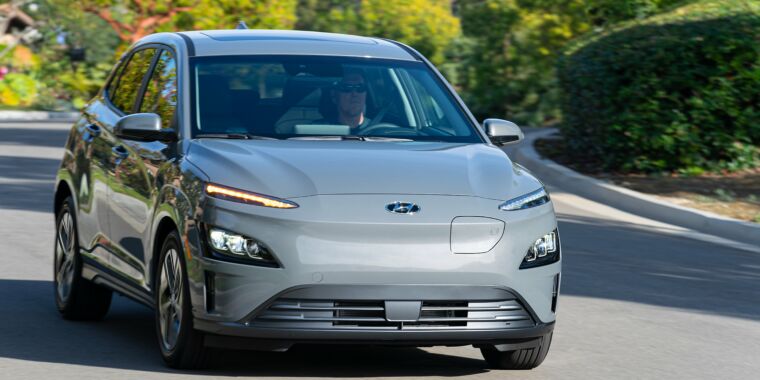
Hyundai
On Wednesday, Reuters reported that Hyundai will recall its Kona EV due to battery problems. In total, about 82,000 Kona EVs will have to be collected globally after 15 fires – 11 in South Korea, two in Canada, one in Finland and one in Austria – for replacement batteries to be installed. Until the recall is carried out, the automaker advises owners not to charge their Kona EVs beyond 90 percent.
In October 2020, the OEM issued the first recall for the Kona EV, affecting more than 37,000 vehicles in South Korea and more than 11,000 in North America and Europe. The cause was the risk of a short circuit in the battery, which could cause a fire. At the time, the South Korean transport ministry suggested that a manufacturing defect could have been the cause, something cell maker LG Chem denied.
These cars received new software, but in January this year, a recovered and updated Kona EV caught fire.
Hyundai will issue a new recall for just under 76,000 Kona EVs built between 2018 and 2020, as well as some Ioniq EVs. This correction is more radical, involving an entirely new battery for each car. Consequently, the recall will be expensive, at about $ 900 million (1 trillion won).
According to Reuters, LG Chem said in a statement that “Hyundai has incorrectly applied LG’s suggestions for fast charging logic in the battery management system, adding that the battery cell should not be seen as the direct cause fire risks. “
Hyundai chose not to comment, but the South Korean transport ministry told Reuters that defects were found in some cells produced at the LG Energy plant in China.
In November 2020, Chevrolet initiated a recall for some Bolt EVs after five fires. The affected Bolts also use LG Chem cells, although they are from a South Korean factory.
